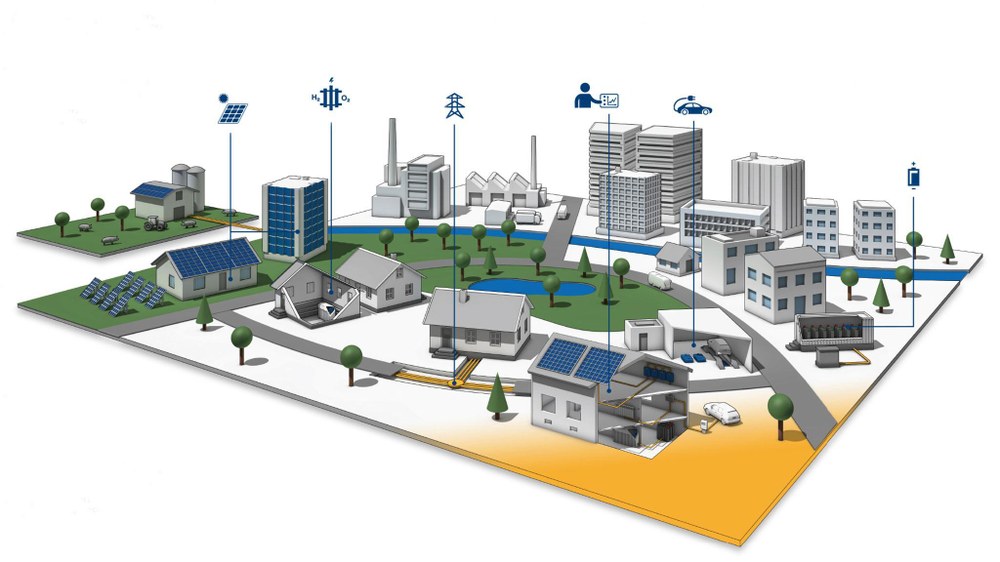Energy system technologies

In an overall energy system, local elements as well as technical information and communication elements play an increasingly significant role. This is why the interaction of various spatial levels, the interplay of individual technologies, the adjustment of generation and demand, and increasing digitalisation are such central subjects of research at DLR. On the one hand, this refers to questions of electrical engineering regarding the network and the management or interdependency of technological components; on the other, this also refers to questions on the fundamental architecture of any future energy system. Due to increasing decentralisation with a high proportion of renewable energies, the distribution grids are coming more into focus. But measures to make energy grids more flexible are also becoming more important, for instance sector coupling. This is particularly true for urban infrastructures. The coupling of the electricity, heat and mobility sectors for residential, commercial and local transport creates particularly large synergy potentials, some of which are already being implemented at component level.
Work is being carried out at the DLR Institute of Networked Energy Systems with the involvement of the DLR Institute of Engineering Thermodynamics, the DLR Institute of Solar Research and the DLR Institute of Combustion Technology.
Sector coupling, solutions for buildings, cities and districts
In a future energy system, sector coupling as a flexibilisation option and the integration of electricity-based renewable energies will play an important role. Combined electricity/heat technologies such as combined heat power (CHP) or heat pumps will be examined and optimised as components in concepts for building- and district-heating systems. Sector coupling also refers to electricity/fuel technologies (hydrogen, hydrocarbons) and electromobility, which will allow decarbonisation of the transport sector. In addition, energy supply solutions and their intelligent management are also being developed. As well as the use of solar energy in solar thermal power plants, new concepts of energy conversion for the local energy supply of urban areas are being developed in the field of energy systems technology.
Grid technologies
Power grids will also play an important role in future energy systems. In this research area, DLR is investigating and developing electrotechnical components in the grid system, in both direct-current and alternating-current grids and their integration. Direct-current solutions have a great significance in the future due to the use of renewable energies. Grid protection, management and control concepts are being examined, as previous mechanisms of grid management and stabilisation are increasingly being taken over by power electronic components.
Flexibilisation, system services and energy management
Intelligent energy management is becoming increasingly important. On the one hand, there are the various grid levels, but on the other hand there are also local structures, for example, decentralised provision of energy through renewable energies and the interactions of these levels with various sectors (electricity, heat, e-mobility) at building, district and city level. The central questions here are how energy provision, load flows and energy requirements can be optimised (Smart Home, Smart City, and Smart Grid). To synchronise fluctuations in generation and consumption, flexibilisation is being researched with the help of complex grid simulations. The restructuring of the generation portfolio for an increasingly electricity-based energy system also requires the use of new services to stabilise the system.
